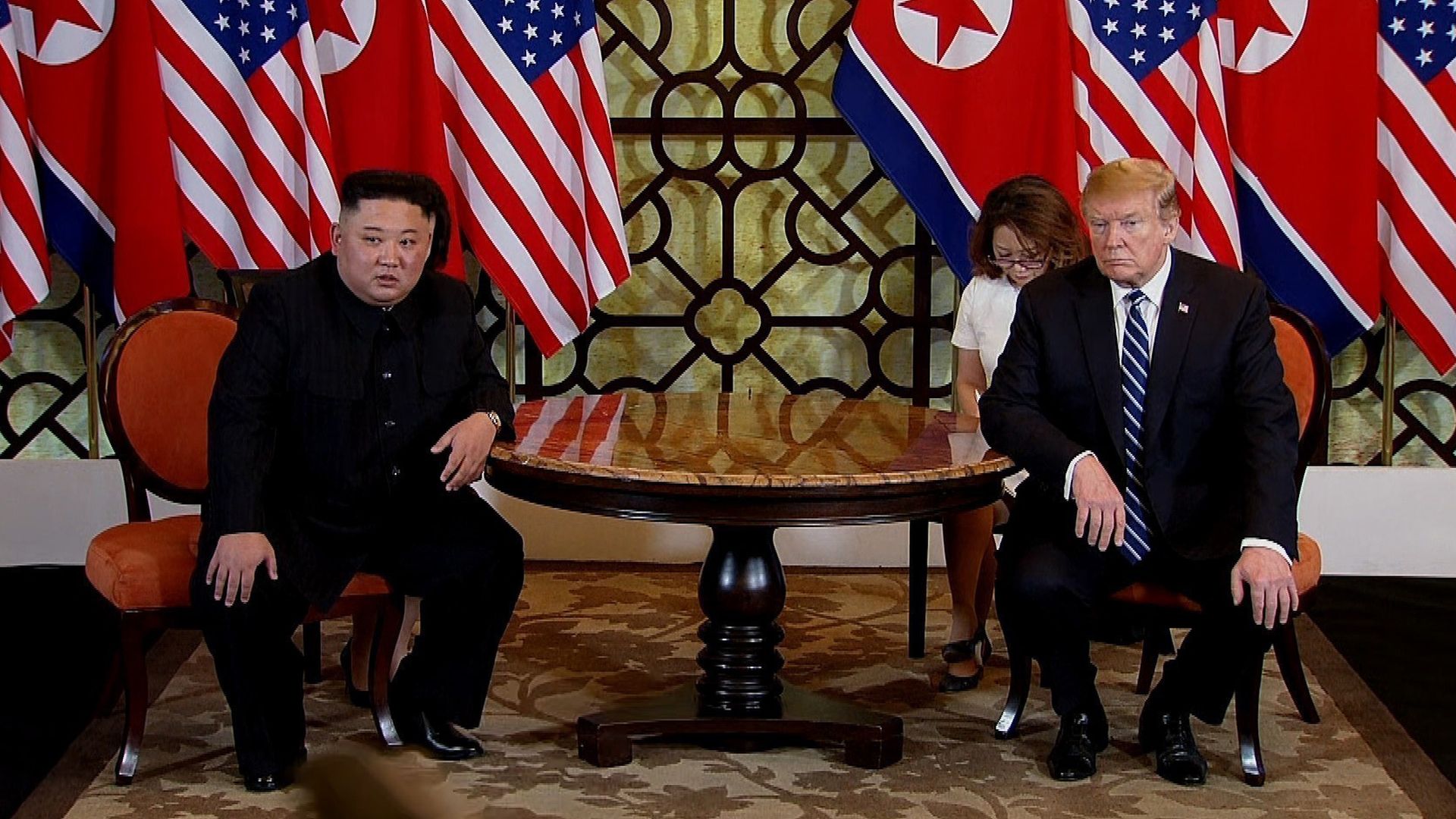Feb 28, 2019 - World
Expert VoicesHanoi summit reflects shortcomings of Trump's personalized diplomacy
Add Axios as your preferred source to
see more of our stories on Google.

President Trump and North Korean leader Kim Jong-un during their second summit meeting, on Feb. 28, 2019, in Hanoi, Vietnam. Photo: Vietnam News Agency/Handout via Getty Images
